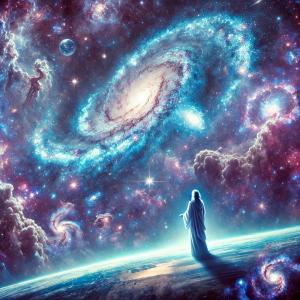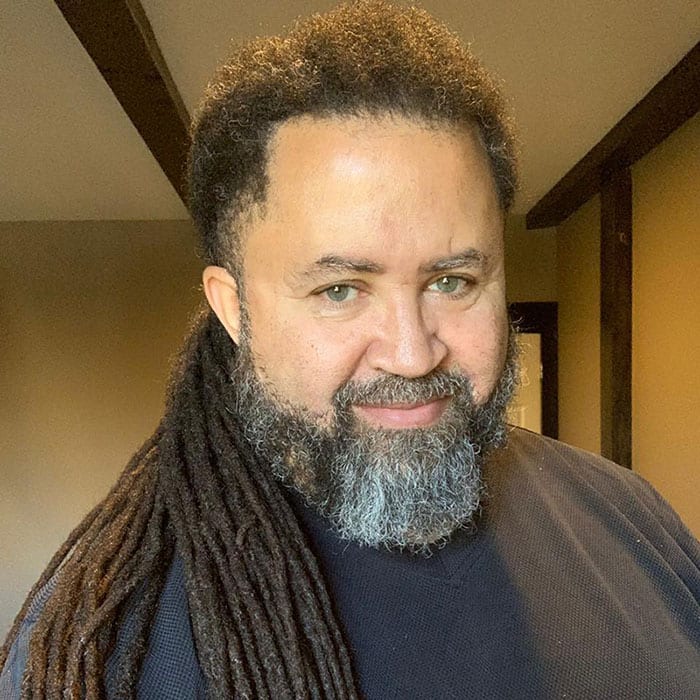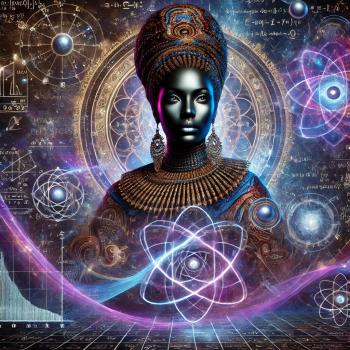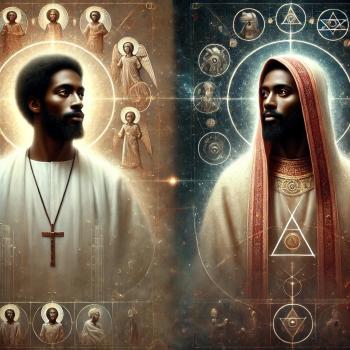
When discussing the origins of the universe, theists love to throw out the classic, “You can’t create something from nothing!” as if they’ve just landed a knockout punch. But guess what? No reputable scientist is actually claiming that the universe popped out of a magician’s hat. The leading theory is that the universe sprang forth from a singularity—a ridiculously dense state of matter and energy that threw the biggest tantrum in history and has been expanding ever since. No divine wand required.
A Preexisting Universe is More Likely Than a Preexisting God (Because Occam’s Razor is a Thing)
The real problem with the Abrahamic God hypothesis is that it doesn’t actually answer anything—it just punts the question downfield. If everything needs a creator, then who or what created God? Watch a theist’s brain short-circuit when you ask this. Their go-to response? “God is uncaused.” Oh, okay. So, we’re just making up rules now? If something can exist forever without an origin story, why not the universe? At least the universe doesn’t demand weekly worship and 10% of your paycheck.
Theists argue that the universe is too “fine-tuned” to exist without divine intervention. But quantum mechanics laughs in the face of this claim. Particles pop in and out of existence, existing in multiple states at once, and generally behaving like the drunk uncle of physics. If the tiniest building blocks of reality don’t require divine micromanagement, why should the universe as a whole?
And let’s be real: if you’re going to propose an eternal being with infinite complexity, that’s a much tougher sell than a self-existing universe. At least the universe doesn’t have an entire PR department dedicated to explaining why its actions are somehow always justified.
If God Exists, It’s Definitely Not Loving (Unless You Call This Love, in Which Case, Yikes)
Abrahamic Theists love to say, “God is love.” If that’s true, then love is the most dysfunctional, abusive relationship ever. Look around—does this universe scream “affectionate craftsmanship” to you? The vast majority of it is an uninhabitable hellscape of burning stars, crushing black holes, and deadly radiation. Even Earth, the so-called “perfectly designed” planet, is trying to kill us at every turn—tsunamis, earthquakes, viruses, and mosquitoes (seriously, mosquitoes are proof there is no god).
Let’s not forget the problem of suffering. If God is all-powerful and loving, why do children get cancer? Why do innocent people die in natural disasters? The usual religious answer is that suffering is part of God’s “greater plan.” Yeah, okay, but if an actual human parent operated that way, we’d call CPS. A god who lets innocent people suffer because it “builds character” is either a sadist or wildly incompetent.
And then there’s the classic “watchmaker analogy,” where God is supposedly the master craftsman, lovingly assembling the universe like a Rolex. But even the best watchmakers don’t sit there obsessing over each individual gear once the watch leaves their hands. If God exists, it seems to have lost all interest in customer service.
The Universe is Predictable; God is Not (And That’s a Problem)
You know what makes the universe great? Predictability. Gravity works the same today as it did yesterday, thermodynamics isn’t having an existential crisis, and the speed of light isn’t suddenly changing just because someone prayed hard enough. That’s why science works—we can make predictions, test theories, and, you know, send humans to the moon without needing divine approval.
Now, compare that to God. Theists claim that God is beyond human understanding, which is another way of saying, “We have no idea what the hell it’s doing.” One day, it’s merciful; the next, it’s drowning the entire world in a divine temper tantrum. Some prayers get answered, others don’t. Some people survive disasters, others perish. And when theists try to explain it, their answers boil down to: “It’s all part of the plan.” Conveniently vague.
Let’s be honest—if God were a character in a TV show, audiences would be screaming about its inconsistency. “Oh, so NOW you care about free will? But what about that time you hardened Pharaoh’s heart just to show off? Make it make sense!”
Meanwhile, science keeps proving itself. We can predict eclipses down to the second, develop vaccines, and harness nuclear energy. Imagine if divine intervention were as reliable as physics—religion wouldn’t need faith. But as it stands, the god hypothesis is indistinguishable from sheer randomness.
The Universe is Just One Big Breath (So Breathe Easy)
Let’s talk about the Big Bang—our universe’s grand entrance. The universe didn’t just “happen” once and for all; it may be caught in an infinite cycle of expansion and contraction, like some cosmic inhale and exhale. What we call the Big Bang might just be the universe stretching out after a long, deep breath in. And what happens after that? A big, inevitable contraction. That’s right—the universe might be a yogi.
This idea, sometimes referred to as the “Big Bounce” theory, suggests that instead of a single creation event, the universe is eternal—just cycling through expansion and contraction phases like a celestial accordion. If this is the case, then the universe has always existed in some form and will continue to do so. Which, frankly, makes a hell of a lot more sense than an omnipotent being snapping its fingers and yelling, “Let there be light!”
And let’s be honest—if you had to bet on which is more likely: an infinite cosmic cycle backed by mathematical models or an all-powerful deity with a disturbingly inconsistent track record? I’d put my money on the universe. It’s got a better warranty.
The Universe Doesn’t Need a God, and Neither Do We
Strip away the comforting, feel-good assumptions about divine love and you’re left with a universe that just is. No bearded overlord pulling the strings, no divine hidden agenda—just natural laws doing their thing. And guess what? That’s enough.
Theists insist that God is necessary because “something” must have caused the universe. But if an eternal god is possible, then an eternal universe is equally plausible—and far simpler. No need for omniscient mood swings or contradictory commandments.
Side note: I do hold out the possibility of something greater than humanity; perhaps energy and/or consciousness—but certainly not the “god” of any religion.
In the end, the god hypothesis doesn’t add clarity—it muddies the waters with contradictions and unnecessary complications. Meanwhile, the universe, indifferent as it may be, follows rules we can actually understand and predict. And honestly, I’d rather bet on gravity than a god who can’t even keep its own commandments straight.
Derrick Day is the author of Deconstructing Religion, Deconstructing Religion 2, The Martial Leader, MetaSpeech, and the host of The Forward Podcast.
















